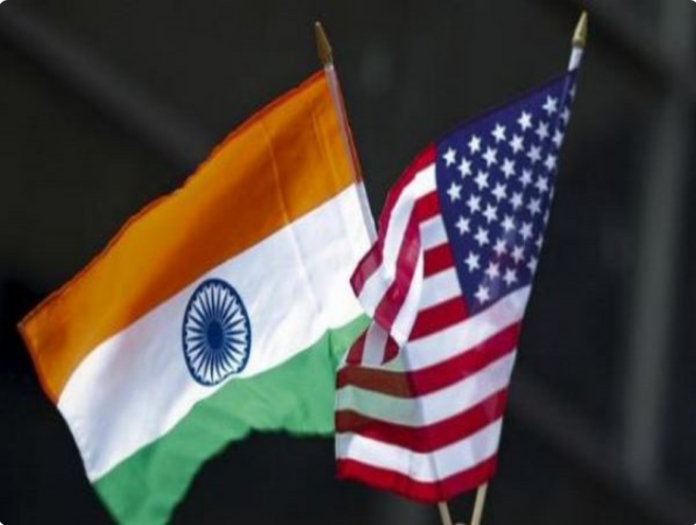Representatives of India’s Department of Commerce and the Office of the US Trade Representative met in the national capital for four days beginning March 26, following the two countries’ agreement to expand bilateral trade to reach USD 500 billion by 2030, including through the conclusion of a Bilateral Trade Agreement (BTA).

A Commerce and Industry Ministry release said that to realize the shared objective of promoting growth that ensures fairness, national security and job creation, both sides have through four-days of discussions in New Delhi broadly come to an understanding on the next steps towards a mutually beneficial, multi-sector Bilateral Trade Agreement (BTA), with the goal to finalize its first tranche by fall 2025.
If you want to fact-check any story, WhatsApp it now on +91 11 7127 9799 or Click Here
Sectoral expert-level engagements under the BTA will start virtually in the coming weeks and pave the path for an early negotiating round in person. “During these discussions, the two sides also had a productive exchange of views on deepening bilateral cooperation in priority areas including increasing market access, reducing tariff and nontariff barriers and deepening supply chain integration in a mutually beneficial manner,” the release said.
The meeting in New Delhi follows Union Commerce and Industry Minister Piyush Goyal’s visit to Washington DC March 4 to 6 during which he met his US counterparts – US Trade Representative Jamieson Greer and Commerce Secretary Howard Lutnick, and subsequent video conferences between the two sides.
“The successful conclusion of the discussions reflects progress in efforts to expand India-US bilateral trade and investment relations to promote prosperity, security and innovation in both countries.
These steps are designed to unlock new opportunities for businesses, drive bilateral economic integration, and reinforce the economic partnership between India and the United States,” the release said.
India and the United States expressed satisfaction with the meeting’s outcomes and reaffirmed their dedication to ongoing collaboration. The release said both sides look forward to building on this milestone in the coming months to finalize the BTA, ensuring it aligns with the shared goals of prosperity, resilience, and mutual benefit.
Ministry of External Affairs spokesperson Randhir Jaiswal said during the weekly media briefing earlier this month that India and the US are in the process of moving bilateral trade negotiations forward.
“The two governments are actively working to build a framework for the BTA, which would aim to expand trade, enhance market access, reduce tariffs and non-tariff barriers, and deepen supply chain integration. The government of India remains engaged with the US administration at various levels to reach a mutually beneficial multi-sector bilateral trade agreement. So I have to convey this to you in response to your question,” he said.
Prime Minister Narendra Modi and US President Donald Trump have resolved to expand trade and investment to make their citizens more prosperous, nations stronger, economies more innovative, and supply chains more resilient. They also resolved to deepen the US-India trade relationship to promote growth that ensures fairness, national security, and job creation. To this end, the leaders set a bold new goal for bilateral trade—”Mission 500″—to more than double total bilateral trade to USD 500 billion by 2030.
The Joint Statement released during PM Modi’s visit to the United States last month said the two leaders announced plans to negotiate the first tranche of a mutually beneficial, multi-sector Bilateral Trade Agreement (BTA) by the fall of 2025.
“To advance this innovative, wide-ranging BTA, the US and India will take an integrated approach to strengthen and deepen bilateral trade across the goods and services sector, and will work towards increasing market access, reducing tariff and nontariff barriers, and deepening supply chain integration,” the statement said.




